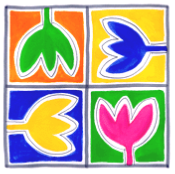The questionnaire surveys include a detailed baseline questionnaire and shorter follow-up questionnaires.
Baseline questionnaire
The baseline questionnaire is sent to all former childhood cancer patients approximately 5 years after their diagnosis. It asks questions about their former cancer disease, their current state of health, quality of life, health behaviour, health care use, psychological and social aspects such as experiences at school.
In the baseline questionnaire, we also ask all survivors if we can contact their siblings. The siblings then receive an adapted version of the questionnaire. The information from the siblings allows us to compare the health and quality of life of survivors with persons without a cancer history.
The baseline questionnaires are available in German, French, and Italian. Three different versions exist that are adapted to the survivors current age:
- Adult version: Survivors aged at least 20 years receive the questionnaire for adults that they can complete on their own.
- Adolescent version: Survivors aged between 16-19 years receive a questionnaire tailored to their age that they can complete on their own.
- Parent version: For survivors younger than 16 years, we ask their parents to complete the questionnaire on behalf of their child. The child can complete a short questionnaire on quality of life and behaviours.
Follow-up questionnaires
The follow-up questionnaires are shorter and repeat important questions on the current state of health of the survivor. They may also cover certain topics in depth such as nutrition. The main aim of these questionnaires is to find out how survivors’ health and quality of life changes over time. The follow-up questionnaires are typically sent out with intervals of a few years between them.
If you have questions about our surveys, please check our page on frequently asked questions and their answers.
